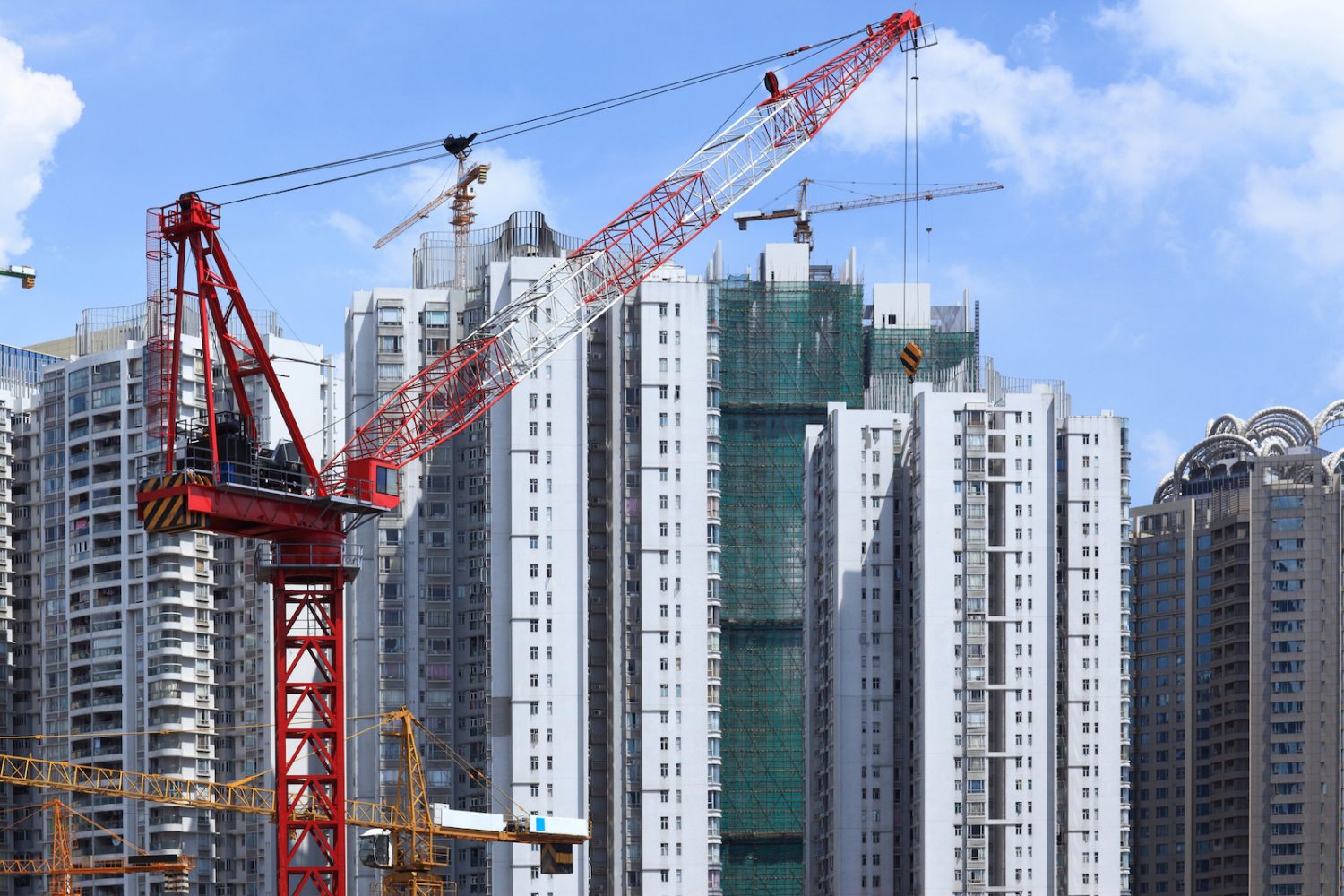Beijing’s unprecedented determination to tame property prices may trigger a worse-than-expected growth slowdown, more loan and bond defaults, and potential stock market turmoil, said Nomura Holdings.
The property sector makes up a quarter of China’s economy and half of the global construction business and global investors should thus be prepared for a deeper economic slowdown in China than is expected, said Hong Kong-based Chief China Economist Lu Ting, in a research note Tuesday.
Investors are so focused on Beijing’s recent regulatory blitz on sectors including technology and private tutoring companies that Lu warned they risk ignoring property curbs that are the ”elephant in the room.”
“The property sector may once again be at centre stage, testing the nerves of both China’s government and global investors,” said Lu. ‘”In a sense, this could be China’s Volcker moment, considering Beijing’s unprecedented determination to tighten property sector policy and tame property prices.”
The ‘Volcker moment’ refers to radical moves made by former US Federal Reserve chairman Paul Volcker in the late 1970s, when he raised interest rates dramatically to successfully contain inflation. Volcker’s actions led to a substantial recession in 1980-82, but then led to long economic expansions in the 1980s and ’90s, Lu said.
Ups and Downs
Because seasoned investors are accustomed to ups and downs in China’s property market policies, they may consider his views ”an exaggeration,” Lu said. But this time it’s different, he said. Now policymakers attach national strategic importance to reining in property bubbles, are intervening directly in the credit supply for property, and leaving “little scope to dial back these curbs,” he said.
“In coming months, we expect China’s GDP growth to drop significantly, driven by the latest wave of Covid-19 (the delta variant), slowing exports, property tightening and the campaign to reduce carbon emissions,” Lu said. “Markets should be prepared for what could be a much worse-than-expected growth slowdown, more loan and bond defaults, and potential stock market turmoil.”
China appears determined to expand the property tax system from some trial programs in Shanghai and Chongqing to the whole of the nation, he said. That’s because homeownership is a root cause of wealth inequality at a time when the nation’s leaders are vowing to achieve “common prosperity,” Lu said.
“At least at this moment, Beijing seems willing to sacrifice some growth stability for achieving these long-term targets, namely less dependence on foreign high-tech goods, achieving a higher birth rate and reducing wealth inequality,” said Lu. The Chinese leadership had laid out new policies for the tutoring sector to lighten the burden on middle-class households “and is now taking steps to move the largest mountain – high home prices – and these property curbs are set to have a much more significant impact on China’s economy and financial markets,” he said.
Because the impact of the curbs will reduce local government land sales revenues, and because it doesn’t have a long-term plan for the property sector, its long-term outlook is uncertain, Lu said.
•Kevin Hamlin and Jim Pollard
ALSO SEE:
Evergrande Says it Will Fix Debts After Rebuke From Worried Regulators
Chinas “grey-rhino” property market could trigger subprime-like crisis
China’s real estate black hole grows as govt mulls taking over sector
























